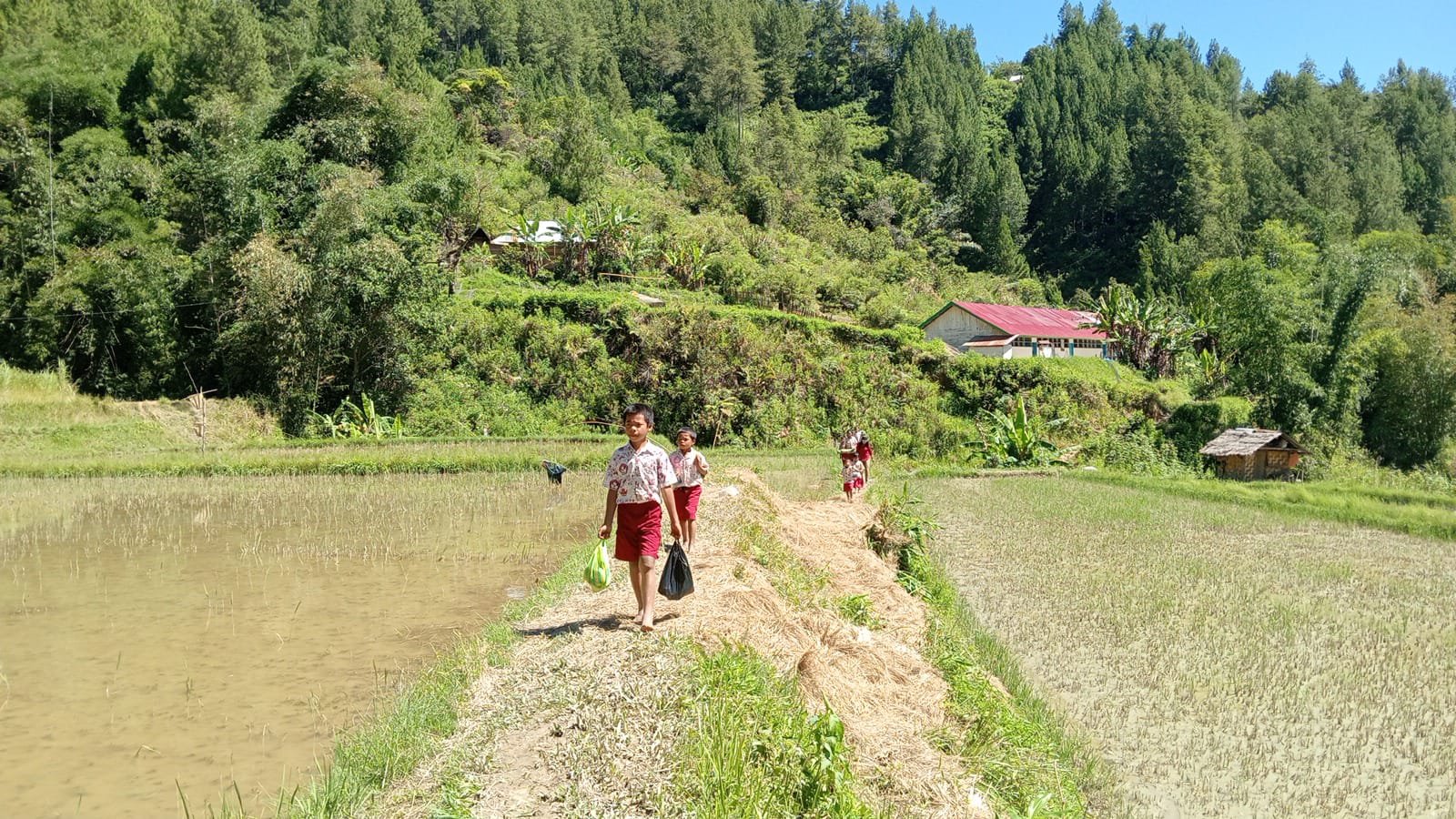To our beloved Asmaraloka community,
I started this organization back in January 2023 with my dear co-founder, Thalia, driven by the belief that education is key to empowering our generation and building a brighter tomorrow. Education has always been a cause that I hold close to my heart. I desire to see every single child across Indonesia, no matter their socioeconomic background, sitting in schools with a strong love of learning that will fuel the impact they will make in our country.
This past semester I’ve spent long hours researching the education crisis in Indonesia: how urgent the problem is, why it’s still happening, current solutions (and why they might not be as effective as we hope), and proposed solutions. With the support of my Professor—who has been incredibly encouraging and continuously pushed me beyond what I thought I was capable of—I concluded my paper with two pilot programs for Asmaraloka Chapters to implement.
My research paper, found below, will cover the current state of the education crisis in Indonesia, followed by proposed solutions which will be implemented by Asmaraloka Chapters. I encourage everyone who is interested to read it. If you’re part of a nonprofit, a school community, or simply someone who cares, I warmly invite you to join us in piloting or adapting these programs. The more of us who act, the faster and wider the impact will reach.
I have full confidence that implementing these programs will bring us one step closer to our longstanding goal of increasing access to quality education for all children in Indonesia.
Every contribution matters.
From one youth to another, always with love.
Sincerely,
Christine Joan EmmanuelaFounder and President Director of Asmaraloka ChaptersExecutive Summary
In 2012, The McKinsey Global Institute predicted Indonesia to be the 7th largest economy in the world by 2030. Currently ranked at 16th with a nominal GDP of USD $1.49 trillion, Indonesia’s economy is nowhere near that prediction. The education crisis in Indonesia contributes greatly to its stunted growth.
Notably, the problem rises from the trend of students dropping out as they enter higher levels of education. Badan Pusat Statistik (BPS) conveys that there is a 33.62% drop in Net Enrollment Rate from Primary to Upper Secondary School. This signifies a pressing issue that Indonesia must first prioritize and tackle in order to see a future where it fully realizes its potential as a rapidly evolving nation.
The key reason behind rising dropout rates as school level increases is the added costs of education, which the law claims to be free for Indonesian citizens. An interview with Arizenjaya, a principal from a rural high school in West Sulawesi, reveals that although students don’t need to pay tuition, they still face significant out-of-pocket costs to attend public school. He claims that added up, these costs, which include uniforms and school materials, could reach IDR 1,350,000 per year, per student. This is often MORE than what their families make in a year.
Indonesian law requires that 20% of all central government spending budget be allocated to education. However, data from BPS shows that only 10.6% (IDR 285,194 billion) of the 2025 government spending budget (IDR 2,701,442 billion) will be spent on education.
Consequently, rural schools in areas like West Sulawesi are left underfunded. As families struggle to make ends meet, children are pulled from school, driving the very challenges Indonesia currently faces.
To solve the crisis at scale, the first step needs to be bringing children back to school. If the biggest hindrance to their attending school is the added costs to the education that is supposed to be free, then bringing them back to school means covering these costs that they simply aren’t able to afford. The gap between how much schools need to be completely free to students and how much the government is giving them is where nonprofits can make an impact.
Ultimately, in order to keep children in school, public schools need to be entirely free of cost. Should nonprofit organizations contribute by providing essential school supplies that are often an added financial burden for families in rural areas, they could help eliminate the key barrier to free education. Schools would be genuinely free for children with no added costs, ensuring that no more children will be pulled out of the school system due to an inability to pay for basic necessities that should be freely provided in the first place.
PILOT PROGRAMS
PILOT PROGRAMS
The Uniform Circulation Project aims to eventually make uniforms free of cost for all students across Indonesia. We will be redistributing new & recycled uniforms to rural schools around Indonesia. It will cost us IDR 54,225,000 to make this happen for each school, every single year. Every contribution matters.
The Urban x Rural School Partnership Program aims to release children from the burden of paying for school supplies and materials. We will be partnering with urban schools to redistribute and deliver school supplies to rural schools around Indonesia. It will cost us IDR 2,750,000 to make this happen for each school, every single year. Every contribution matters.

